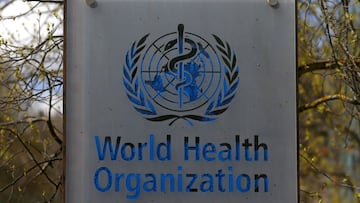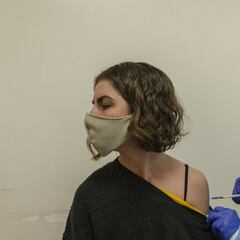Covid-19 variant in South Africa: what are its characteristics?
A mutation of the coronavirus appears to be linked to all the existing variants of concern, but does the C.1.2. variant pose any greater threat?


Earlier this month a South African research paper released further details about a covid-19 variant which was first detected in May.
The strain, known simply as the C.1.2. variant at this stage, is thought to be a mutation of the C.1 variant which took hold in South Africa earlier this year and the research paper describes it as a "concerning constellations of mutations."
Here’s what is known so far about the new variant…
What is the South African covid-19 variant?
More than 18 months in the pandemic, the original virus that was first identified in Wuhan has undergone millions of transmissions and has mutated countless times over that period. The South African researchers said that the new variant is a “highly mutated beyond C.1 and all other [variants of concern] and [variants of interest] globally with between 44-59 mutations away from the original Wuhan Hu-1 virus.”
This variant was direct identified in the Gauteng and Mpumalanga provinces of South Africa and has since spread as far afield as England, China, New Zealand, Portugal and Switzerland.
Scientists in South Africa are watching a new coronavirus variant C.1.2. @McKenzieCNN has the latest from Joburg pic.twitter.com/v019cblub2
— Larry Madowo (@LarryMadowo) August 31, 2021
Interestingly, the C.1.2. variant appears to share characteristics common to all four Variants of Concern: alpha, beta, delta and gamma. This had led scientists to believe that the new variant may have mutated in a single individual who had a prolonged case of covid-19, allowing the virus to evolve more rapidly.
Scientists have warned: "The combination of these mutations presents a potentially novel antigenic landscape for C.1.2. variant specific antibodies.”
How dangerous is the South African covid-19 variant?
Although C.1.2. is known to share some characteristics with the alpha, beta, delta and gamma variants, the fact that it does not yet have its own name is telling. Analysts have used letters from the Greek alphabet to label these ‘variants of concern’, which are the most dangerous forms of covid-19 currently identified.
On Tuesday the World Health Organization said that the South African variant "does not appear to be increasing in circulation.”
Related stories
This analysis is backed up by case numbers in the country which suggest that it only accounted for around 3% of new covid-19 infections in July. In comparison, the much more transmissible Delta variant was responsible for around 89% of South African coronavirus infections that month.
Speaking about the likelihood of C.1.2. taking hold, Dr Megan Steain, a virologist at the University of Sydney's Central Clinical School, told The Guardian. "I think we're still very much at a point where this could die out, the prevalence is really low."

